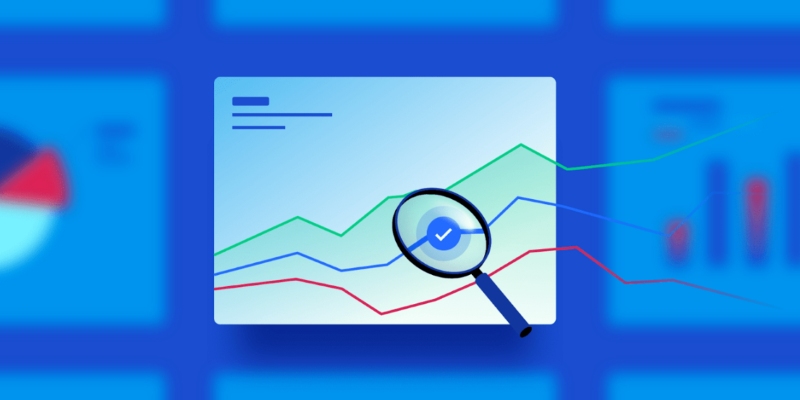Tax liabilities can be confusing and difficult to understand which is why so many people dread tax season! If you're new to the concept of taxes, it's important to learn the basics, like what a tax liability actually is and how it is calculated. In this blog post, we'll go over all that and more in order to provide you with the knowledge needed to calculate your taxable income and make sure you have everything ready for when it's time to file your taxes. Read on for what promises to be an informative—and hopefully stress-free—lesson on tax liabilities!
What is Tax Liability and How Does it Impact Your Finances?
Tax liability refers to the amount of taxes you owe to the government based on your income and other factors. It is not a new concept but its impact on people's finances cannot be ignored. Understanding your tax liability is important because it determines how much money you have left after taxes for your other expenses, savings, and investments. Having a higher tax liability can reduce your disposable income and impact your overall financial health negatively. Therefore, it is important to plan ahead and manage your tax liability through proper tax planning and filing. This will help you minimize your tax burden and make the most out of your hard-earned money.
What Are the Different Types of Tax Liability?
There are various forms of tax liability that individuals and businesses should be aware of:
- Income Tax Liability: This is the tax levied on one's income, whether that be from a job, self-employment, or investments. The liability is typically determined by your tax bracket, which is based on the amount of income you earn.
- Corporate Tax Liability: This refers to the tax that companies owe on their profits. The corporate tax rate varies from country to country, and sometimes even within regions of the same country.
- Sales Tax Liability: If you own a business that sells goods or services, you generally have to collect sales tax from your customers. This collected amount is a liability because you owe it to the government.
- Property Tax Liability: If you own property, you typically have to pay property taxes. The amount of these taxes is usually derived from the assessed value of your property.
- Capital Gains Tax Liability: When you sell an asset for more than you paid for it, the profit is considered a capital gain and may be subject to capital gains tax.
Understanding these different types of tax liabilities can help you better manage your finances and potentially reduce your overall tax burden.
Understanding Your Tax Bracket and Its Impact on Your Liability
As the saying goes, there are only two things certain in life: death and taxes. And while no one likes paying taxes, understanding your tax bracket can make a big difference in managing your liability.
Your tax bracket is determined by your income level, and the higher your income, the higher your tax rate. This means that as you earn more money, you will be taxed at a higher percentage, putting you in a higher tax bracket. However, it's important to note that only the portion of your income that falls into the higher bracket is taxed at the higher rate.
Understanding your tax bracket and the impact on your liability can help you plan and budget accordingly, ensuring that your tax bill won't come as a surprise come April 15th.
Calculating Your Taxable Income to Determine Liability
When tax season rolls around, it's important to know how to calculate your taxable income in order to determine your liability. Many factors can affect your taxable income, such as salaries, wages, bonuses, capital gains, and even rental income. Once you've gathered all sources of income, you'll need to subtract any applicable deductions and exemptions.
Don't forget to account for any tax credits you may be eligible for. The final number you come up with will be your taxable income, which will determine your tax liability. Understanding how to calculate your taxable income can help you prepare for tax season and ensure that you're setting aside enough money to cover any potential liabilities.
Tips for Reducing Your Tax Liability
- Contribute to tax-advantaged retirement accounts (e.g., 401(k) or IRA)
- Take advantage of tax credits (e.g., Child Tax Credit or Education Tax Credit)
- Keep track of expenses and deductions throughout the year
- Maximize tax deductions during tax season
By following these tips, you can lower your tax liability and retain more money.
Common Mistakes Made When Calculating Tax Liability
No enjoys dealing with taxes, but it's a necessary evil that we all must face. Unfortunately, many individuals and businesses make common mistakes when calculating their tax liability, leading to potential penalties and fines.
Mistakes to Avoid:
- Forgetting to keep track of expenses
- Miscalculating the depreciation of assets
- Failing to report all sources of income
- Incorrectly classifying income
Navigating the world of taxes can be overwhelming, but avoiding these common mistakes can help ensure a smooth and accurate tax season.
Conclusion
it is important to understand and be aware of your tax liability as you plan for your finances. Knowing the different types of liability can help you to make accurate estimates and calculate taxable income more easily. It is also useful to know your tax bracket and how it impacts your financial situation in order to maximize savings and minimize liabilities. Additionally, there are tips for reducing your tax liability when filing returns such as taking advantage of deductions or deferring payouts until another year.
Lastly, it’s important to avoid common errors that could prevent you from getting the highest benefit when filing taxes and reduce potential liabilities accordingly. Tax planning requires diligence and a clear understanding of the available resources but doing so can help significantly reduce liabilities while maximizing savings in the long run.
FAQs
What is tax liability?
Tax liability is the amount of money an individual or business must pay in taxes as determined by their taxable income.
How do I calculate my taxable income?
Your taxable income is calculated by subtracting any applicable deductions and exemptions from your total income. It's important to also account for any tax credits you may be eligible for.
What are some tips to reduce tax liability?
Some tips for reducing your tax liability include contributing to tax-advantaged retirement accounts, taking advantage of tax credits, and maximizing deductions during tax season. Additionally, it's important to keep track of expenses throughout the year in order to ensure accuracy when filing taxes.



